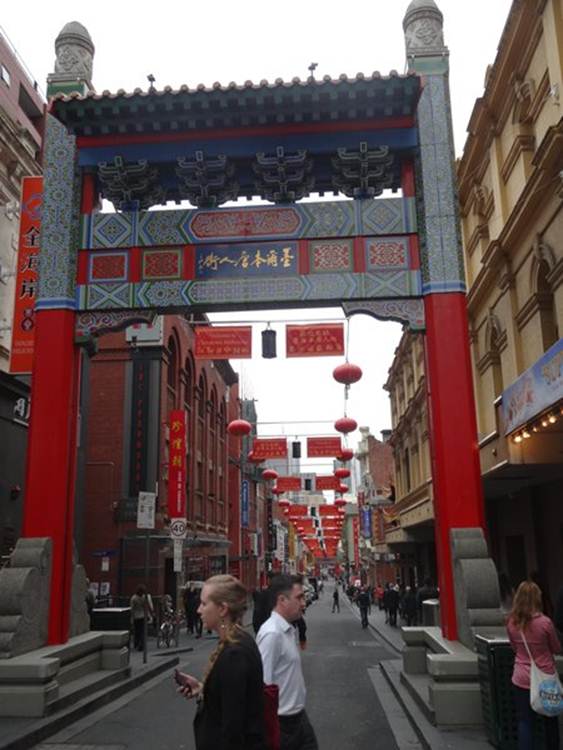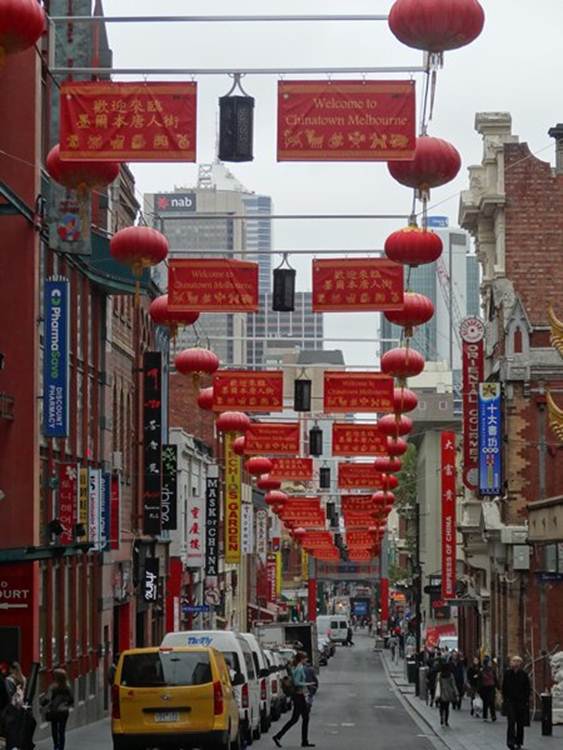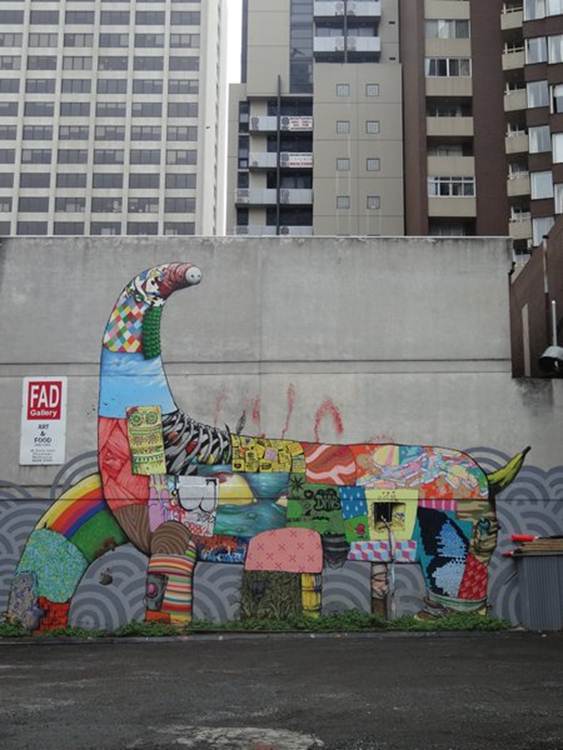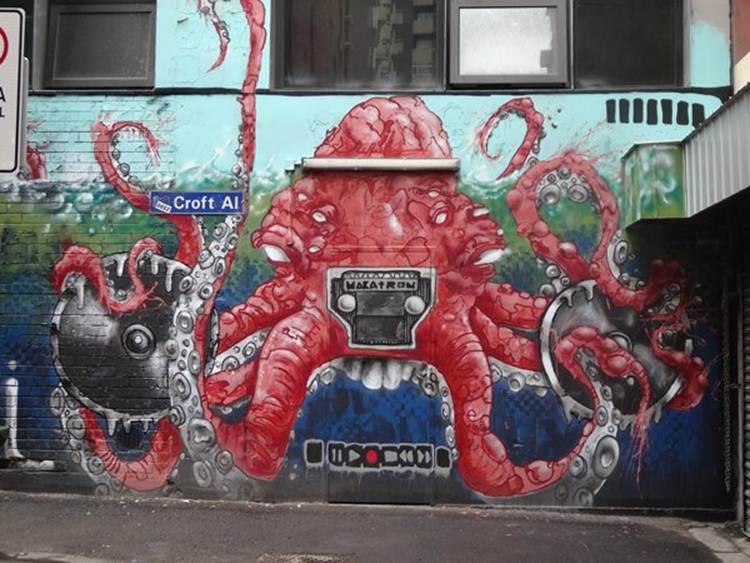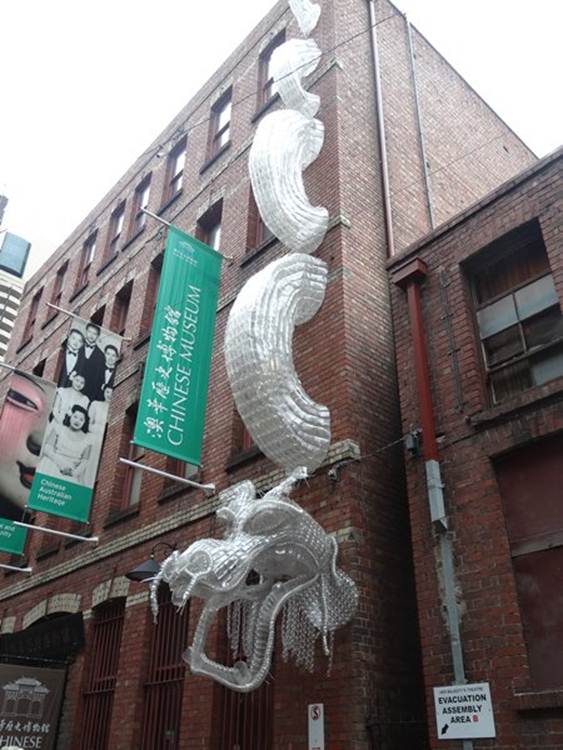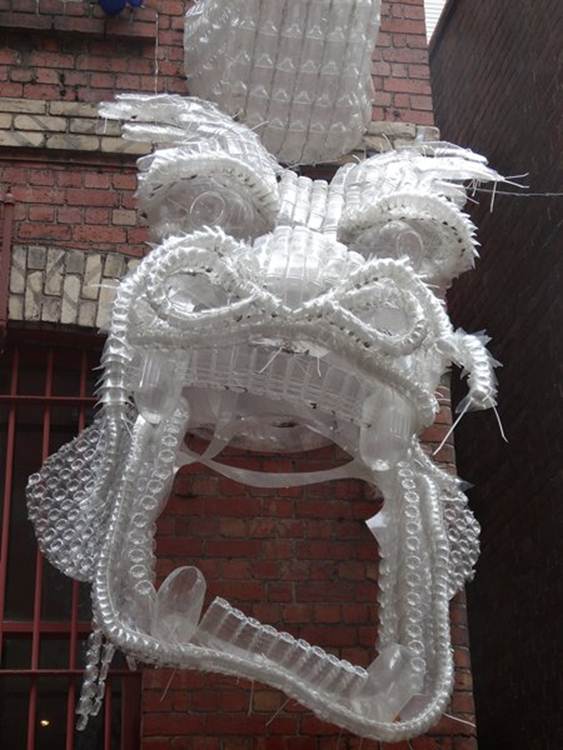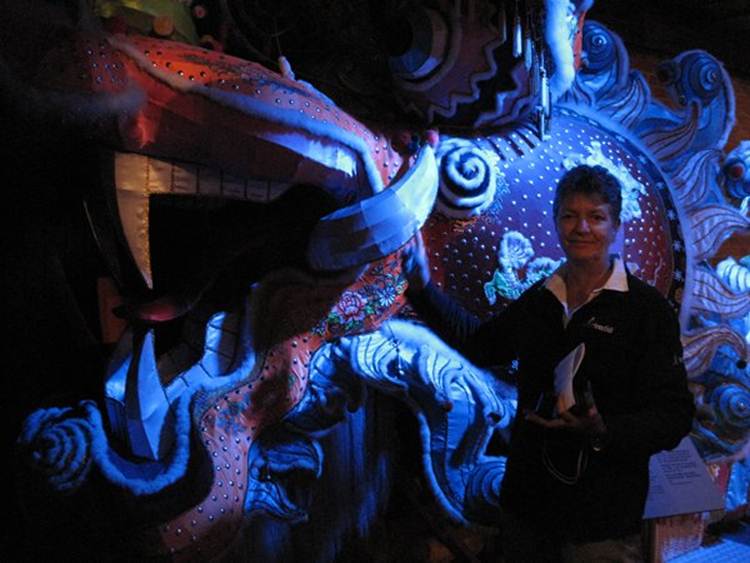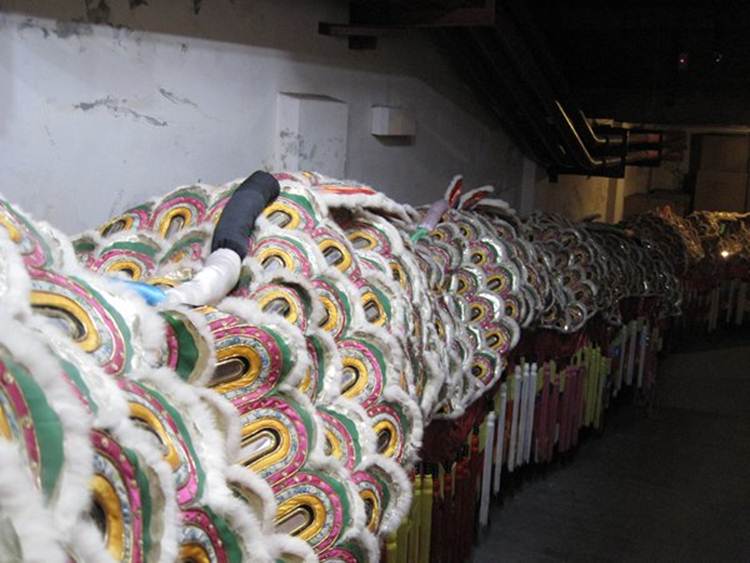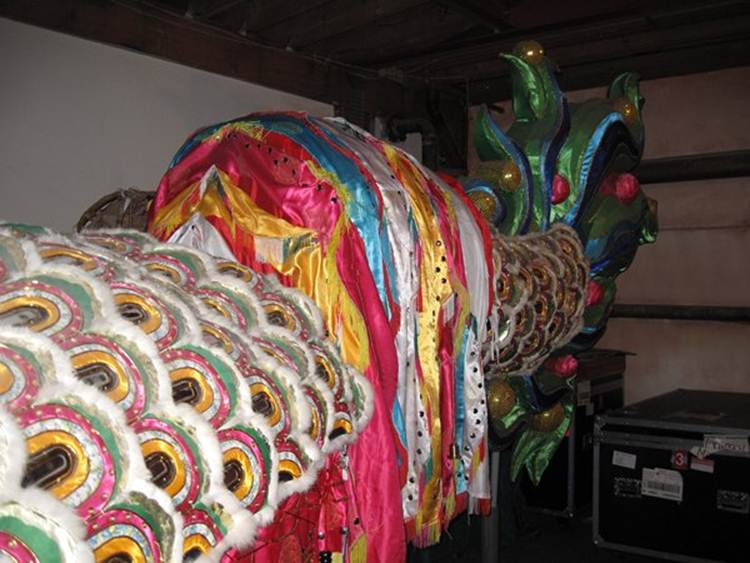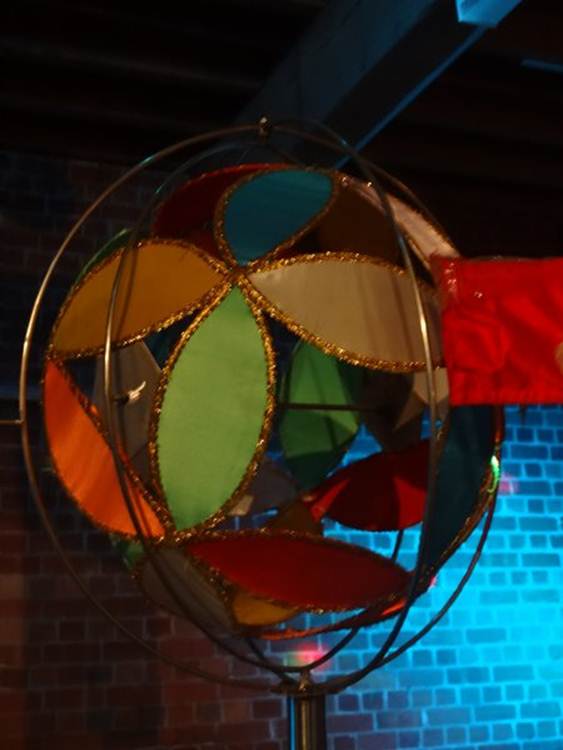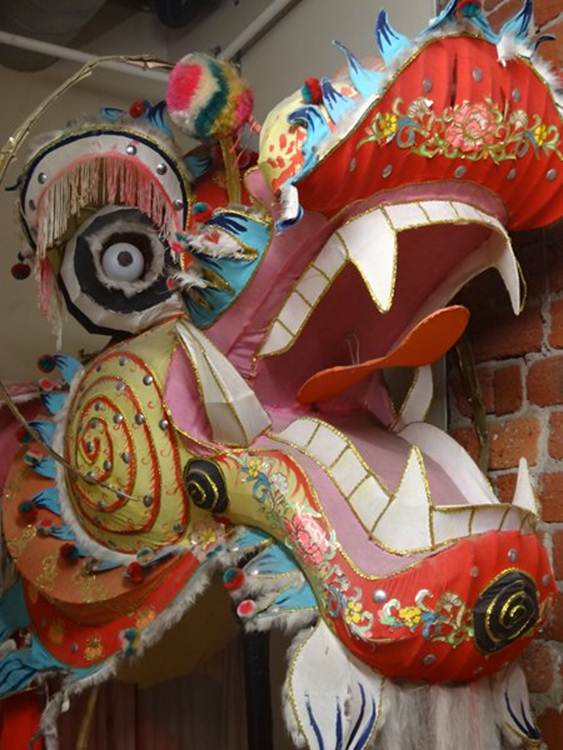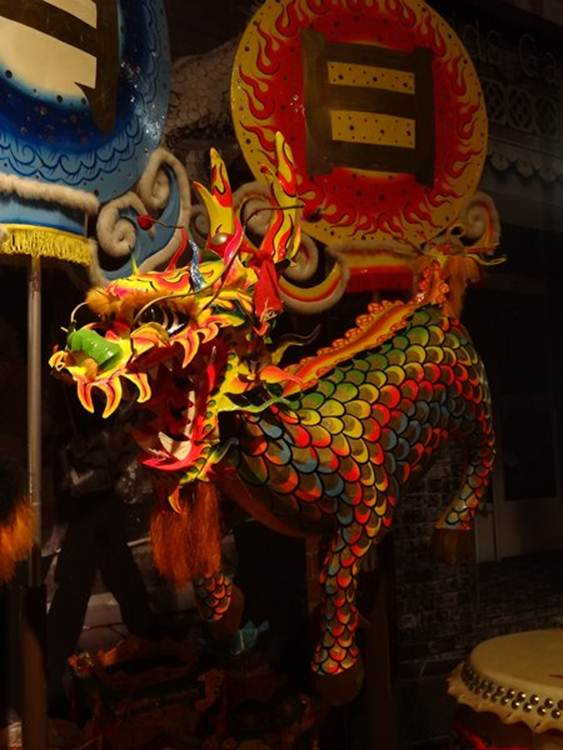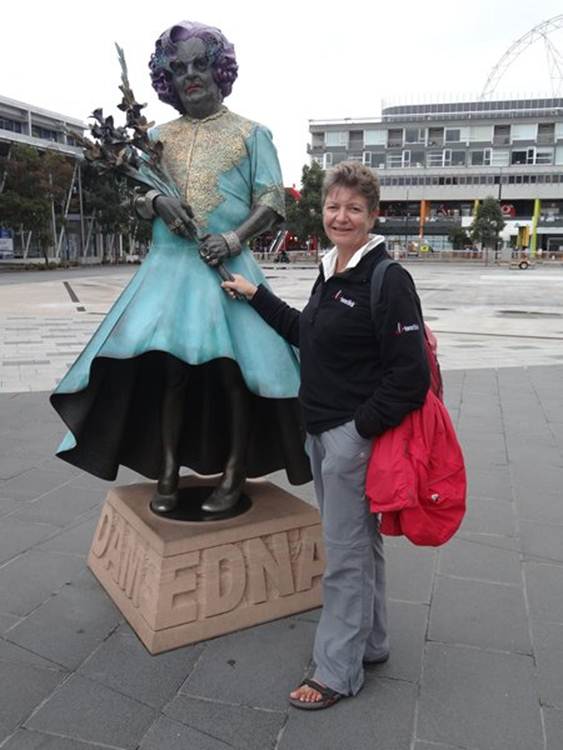Melbourne Chinese Museum

Staying on a nice little site in Coburg, but a long way from CBD. We have bought a 4 day transport ticket with which we can use any tram and bus within a 10km radius of the CBD. There are two trams close by, one is via a 20 minute bus journey, the other is a twenty minute walk. Both take about 30mins to get to the city centre. The down side is that you have to pay $6 for a pass card, onto which you then add money. Big complaints from tourists. But then the tourists must be paying for the rest of the population because when we travelled on the trams during the week hardly anybody scanned their cards. They must be losing a tens of thousands of dollars every day in lost ticket prices. On our first day in Melbourne we went to Chinatown and had lunch in the Greek quarter. This is one of the four archways that lead into Chinatown.
Not sure what the lanterns were for, but they look pretty. Actually they look like adverts in Chinese and English.
Some great street art:
The entrance to the Chinese Museum – all bottles
There are three processional dragons on display in the Museum – well three heads and one body – the Grandfather Dragon, Dai Loong the Big Dragon and the Millennium Dragon. Chinese dragons are good natured and believed to bring happiness, immortality, fertility and ward off evil spirits. Needless to say, with such virtues the dragon was adopted to represent the Emperor, so some Chinese refer to themselves as descendants of the dragon. Every Chinese New Year, which marks the beginning of spring, the dragon rises from his slumber into the sky, where his breath produces rain. The dragon controls the heavens and brings the rains so has an important role in Chinese agricultural society. This is the Millennium Dragon – the world’s largest processional dragon – purchased in 2003. He leaves the museum twice a year – Chinese New Year and the Moomba – Labour Day - festival. It takes 8 people to move the dragon head which weighs about 200kg – difficult to photograph because of the lighting.
It takes about a hundred people to parade the entire dragon. This is part of the body.
And the tail..
The pearl of wisdom is a symbolic (obviously) representation of a dragons wisdom. The dragon is the wisest of all creatures and his wisdom lies within his extended forehead. This is the flaming pearl of wisdom, which is used to tempt the dragon out of his lair. The dragon chases this pearl through the streets of Melbourne. The Pearl of Wisdom is usually painted in Chinese art as being just out of reach, so the dragon is always chasing wisdom. The dragon reaches out mouth open and eyes bulging in anticipation of catching his wisdom, which is why you always see the mouth flapping open and shut and big eyes on the processional heads..
Another Chinese processional head.
Another being who accompanies the dragon on his rising.
Me and Dame Edna in Melbourne docklands.
|
